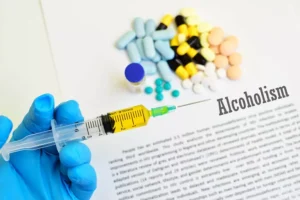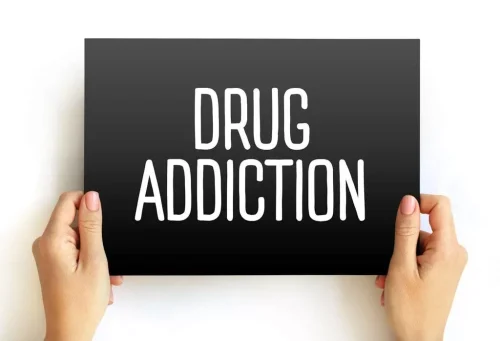
When this reward system is disrupted by substance misuse or addiction, it can result in the person getting less and less enjoyment from other areas of life when they are not drinking or using drugs, according to the Surgeon General’s report. Executive Contract opportunity | Ensure the best possible service delivery of mental health, alcohol and other drugs treatment services in Queensland by leading the strategic direction for mental health, alcohol and other drug treatment policy, programs and services. If you are taking any kind of medication for a mental or physical health condition it’s always worth asking your doctor or your pharmacist whether you can drink alcohol while you’re taking it, and whether they’d advise changing your drinking habits in any way. If you struggle with depression and anxiety, or other mental health problems, but would like to drink, the best advice is to stick within the Chief Medical Officers’ guidelines by not having more than 14 units of alcohol per week. That means about six pints of lager, or six standard glasses of wine, spread out over three or more days and with a few days off. Alcohol-induced psychosis is defined by symptoms of hallucinations, delusions, or both when drinking or going through withdrawal.
Increased Risky Behaviors
Alcoholic women and men also seem to differ in the temporal order of the onset of these conditions, with most mood and anxiety disorders predating the onset of alcoholism in women (Kessler et al. 1997). Given these observations, it is especially important in female patients to perform a thorough psychiatric review that probes for major mood disorders (i.e., major depression and bipolar disorder) and anxiety disorders (e.g., social phobia). Overall, anxiety disorders do not seem https://ecosoberhouse.com/ to occur at much higher rates among alcoholics than among the general population (Schuckit and Hesselbrock 1994). For example, results from the Epidemiologic Catchment Area survey indicated that among patients who met the lifetime diagnosis of alcohol abuse or dependence, 19.4 percent also carried a lifetime diagnosis of any anxiety disorder. This corresponds to only about 1.5 times the rate for anxiety disorders in the general population (Regier et al. 1990; Kranzler 1996).

Co-Occurring Disorder Treatment at Footprints to Recovery

The American Medical Association recommends a two-drink daily limit for people assigned male at birth (AMAB). Heavy drinking in this population is five or more drinks in one day or 15 or more drinks in a week. People assigned female at birth (AFAB) should limit drinking to one drink a day. Heavy drinking in this population is four or more drinks a day or eight drinks a week. Undergoing treatment for AUD can be challenging, and there’s always a risk of relapse.
- Loved ones are an integral part of the addiction recovery process, but they need to balance their own needs in addition to providing support.
- When the drinkers were still relatively healthy, they could control their impulse to drink because the judgment and decision-making circuits of their prefrontal cortex would balance out those impulses.
- You may well find that your drinking starts to get in the way of other activities and puts a strain on your relationships – both things that can undermine your mental wellbeing.
- A BAC from 0.35% to 0.80% causes a coma (unconsciousness), life-threatening respiratory depression and possibly fatal alcohol poisoning.
Mental Health Issues: Alcohol Use Disorder and Common Co-occurring Conditions
In this context the clinician should focus on the age at which the patient first met the criteria for alcohol abuse or dependence rather than on the age when the patient first imbibed or became intoxicated. This strategy provides more specific information about the onset of problematic drinking that typically presages the onset of alcoholism (Schuckit et al. 1995). Probing for such problems typically includes four areas—legal, occupational, and medical problems as well as social relationships.

How is alcohol use disorder diagnosed?
Many choose to self-medicate with alcohol or drugs, but this opens the door for real problems with substance abuse and mental illness as the two can perpetuate each other into a vicious cycle. There are many risk factors and components to consider, but none more so than mental illness. According to research from the National Alliance on Mental Illness, around 1 in 5 (20%) of U.S. adults experience mental illness each year. There is a close connection between alcoholism and mental illness for some people. For some people, alcohol dependence can also cause social problems such as homelessness, joblessness, divorce, and domestic abuse.
- Our clinical team is experienced and skilled in providing exceptional care to everyone in need.
- This confrontation triggered a more intense drinking binge that ended only hours before his arrival in the emergency room.
- Treatment can be outpatient and/or inpatient and be provided by specialty programs, therapists, and health care providers.
- Realizing you may have an issue is the first step toward getting better, so don’t hesitate to talk to a healthcare provider.

Schizophrenia and AUD may share underlying causes or genetic factors that increase the chances of experiencing both conditions. As you become intoxicated, alcohol can distort your senses, which may also contribute to the experience of psychosis. Long-term alcohol use can change your brain’s wiring is alcoholism a mental illness in much more significant ways. Your body breaks alcohol down into a chemical called acetaldehyde, which damages your DNA. Damaged DNA can cause a cell to grow out of control, which results in cancerous tumors. This can lead to job loss, financial instability, and a decline in career prospects.

Healthcare professionals may treat the comorbid disorders in ways that target them together. The treatment for depression that co-occurs with AUD is typically the same and may also involve alcohol dependence medication, such as naltrexone. Researchers believe there may be genetic links between mood disorders, such as depression, and substance use disorders. When patients have sleep-related concerns such as insomnia, early morning awakening, or fatigue, it is wise to screen them for heavy alcohol use and assess for AUD as needed.